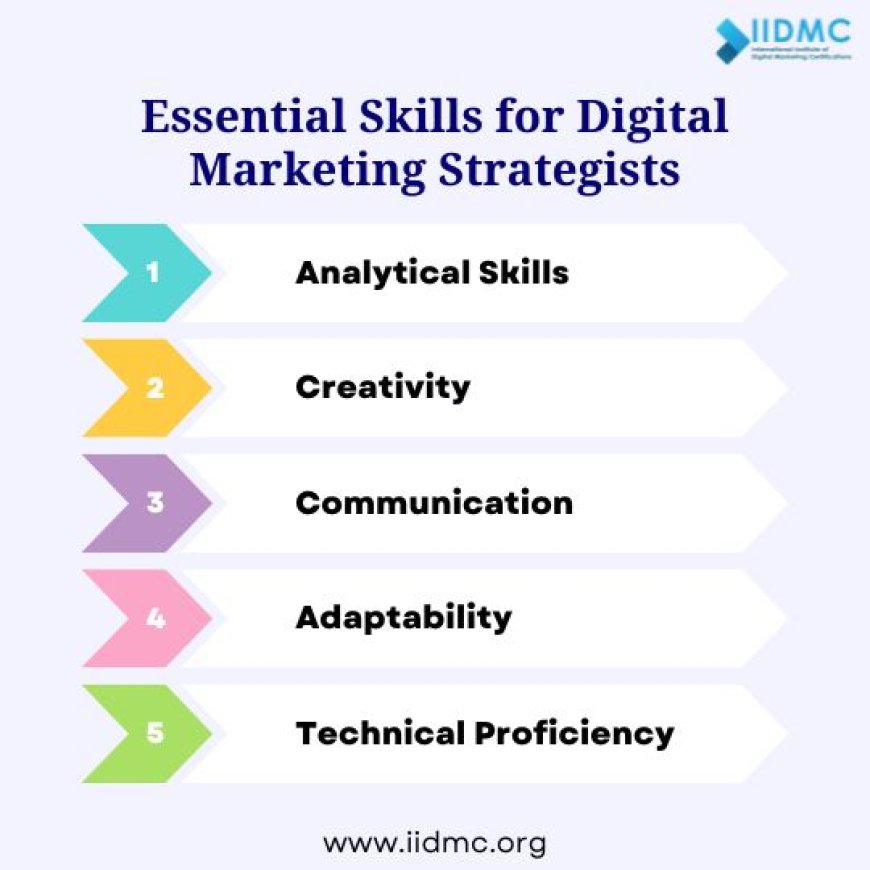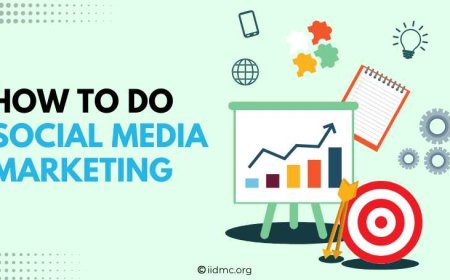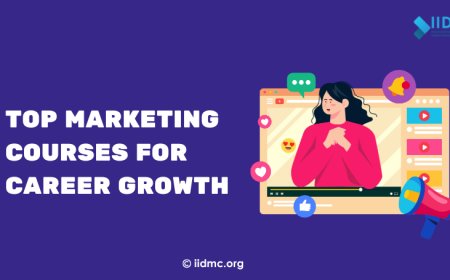The Role of a Digital Marketing Strategist
Explore the essential role of a digital marketing strategist in online marketing. Learn how they craft effective strategies to boost success.

Businesses are constantly competing for attention, hoping to outperform competitors and win the hearts of customers in the hectic digital environment. The digital marketing strategist is the driving force behind effective online campaigns and brand elevation.
Digital marketing is more than just promoting things or services; it's about telling compelling stories, making real connections, and achieving tangible outcomes. A good digital marketing strategist has a thorough awareness of the numerous internet channels, such as social media, search engines, email, and content platforms. Their experience is in using various platforms to increase brand visibility and engagement.
Nowadays, personalization is essential, and digital marketing strategies must be adapted to specific audiences and goals. A skilled digital marketing strategist can analyze data, spot patterns, and adapt plans accordingly. By being ahead of the curve, they ensure that businesses remain relevant and resonate in a rapidly changing digital market.
Responsibilities of a Digital Marketing Strategist
Conducting market research and identifying target audiences:
To comprehend the demands, preferences, and behaviors of the target audience, market research is required. To find possible clients, it involves examining market trends, psychographics, and demography. A digital marketing strategist may effectively develop campaigns to resonate with their audience by having an in-depth knowledge of them.
Developing comprehensive digital marketing plans aligned with business goals:
A digital marketing strategist drafts comprehensive plans that specify how to use digital channels including social media, email, SEO, content marketing, and more to meet the goals of the organization's marketing strategy. These strategies are designed to support overarching company objectives, such as raising sales, generating leads, improving website traffic, or raising brand awareness.
Overseeing the execution of campaigns across multiple channels:
After the plan is established, the digital marketing strategist is in charge of organizing the execution of campaigns on different digital media. This entails collaborating closely with the marketing group or agency to guarantee that campaigns are carried out efficiently, punctually, and economically. They might also work on landing page optimization, ad design, or content creation.
Analyzing campaign performance and making data-driven decisions:
Success in digital marketing efforts depends on tracking and evaluating campaign effectiveness. Key performance indicators (KPIs) like website traffic, conversion rates, engagement metrics, and return on investment are monitored by digital marketing strategists using a variety of analytics tools. They use this data to influence their judgments to improve overall performance, optimize marketing, and manage money wisely.
Staying updated with industry trends and emerging technologies:
The field of digital marketing is always changing as new platforms, technology, and trends appear regularly. To be competitive, a digital marketing strategy needs to keep up with these changes. This entails reading trade journals, networking with colleagues, going to industry events, and always learning about new techniques and tools. By keeping up to date, they can modify their strategy and take advantage of the newest developments to help their company achieve its goals.
Challenges Faced by Digital Marketing Strategists
1. Ever-changing algorithms: Platforms such as Google and social networking sites often update their algorithms, influencing how information is sorted and shown. Keeping up with these shifts and adapting methods properly can be difficult.
2. Increased Competition: As digital marketing gains popularity, competition has gotten stronger. Standing out in a sea of material necessitates ongoing innovation and ingenuity.
3. Data Overload: While data is essential for making educated decisions, the sheer amount of data available can be daunting. To gain useful insights, digital marketers must filter through massive amounts of data.
4. Fragmented Audience: Because consumers are distributed across multiple internet channels and devices, reaching and engaging them successfully is tough. Marketers must develop tactics for connecting with fragmented audiences across several media.
5. Ad Blocking: The rise of ad-blocking software has created a big hurdle for digital marketers. Finding ways to distribute material that resonates with audiences while remaining quiet is critical.
6. ROI measurement: It can be difficult to demonstrate the return on investment for digital marketing operations. To demonstrate the performance of their plans, marketers must measure a variety of metrics and relate them to corporate objectives.
7. Content Saturation: The internet is overflowing with content, making it difficult for marketers to gain and maintain audience attention. Creating high-quality, interesting content that breaks through the clutter is critical.
8. Cybersecurity Concerns: With the rising frequency of cyber assaults and data breaches, safeguarding sensitive consumer information is critical. To maintain consumer trust, digital marketers must guarantee that their initiatives follow tight cybersecurity rules.
9. Short Attention Spans: Consumers now have shorter attention spans than ever before, thanks to the fast-paced nature of the digital world. Marketers must create short, powerful messaging that grabs attention quickly.
10. Navigating New Technologies: While emerging technologies like AI, AR, and VR provide exciting prospects for digital marketers, they also create obstacles in terms of implementation and integration with existing tactics.
Essential Skills for Success

How important is data analysis for digital marketing strategists?
Data analysis is the foundation of digital marketing strategy, with great capacity to shape campaigns and drive success. Marketers acquire unique insights into consumer behaviour, tastes, and trends by analyzing the quantity of data created by online interactions. This information allows businesses to create targeted strategies that appeal strongly to their target demographic, increasing engagement and conversion rates. Furthermore, data analysis enables real-time campaign optimization, allowing marketers to quickly modify strategies in response to performance metrics and emerging patterns. This agility is critical in the fast-paced digital world, as it ensures that marketing activities remain relevant and effective.
Furthermore, data analysis fuels the desire for ROI by offering a complete picture of campaign success and effectiveness. Marketers can properly calculate the returns on their efforts, allowing them to deploy resources more efficiently and justify marketing spending. Beyond review, data analysis powers predictive analytics, allowing marketers to predict future trends and consumer behaviour. This foresight enables them to stay ahead of the curve by proactively modifying strategy to capitalize on emerging possibilities and preserve a competitive advantage. In essence, data analysis guides digital marketers to success by providing evidence-based insights and strategic foresight.
A digital marketing strategist plays an important role in managing the ever-changing online business world. They drive campaigns that appeal to audiences and meet company objectives by recognizing market trends, leveraging data analysis, and adapting to changing technology. Despite hurdles such as changing algorithms and content saturation, the strategist's ability to innovate and connect with disparate audiences is critical. With a keen eye on industry trends and a commitment to data-driven decision-making, digital marketing strategists help businesses survive in the ever-changing digital world.





























